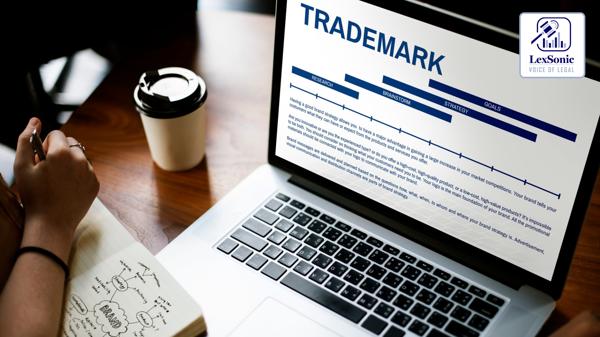Trademark Infringement Suits and Territorial Jurisdiction: Why Mere Delivery in a City Does Not Confer Business Jurisdiction.
11 August 2025
Trademark Laws in India >> Intellectual Property Rights
In an important ruling concerning the infringement of trademark rights and the tort of passing off, the Court has recently dealt with the issue of territorial jurisdiction under the Trade Marks Act, 1999 and the Code of Civil Procedure, 1908 (CPC). The case was instituted by the Plaintiff, a partnership firm engaged in the sale of electronic goods under the registered trademark ‘ARCEE’, against the Defendants who had opened a store under the name ‘ARCEEIKA’, allegedly using a deceptively similar trade dress to ride on the Plaintiff’s goodwill.
Background:
The Plaintiff, originally incorporated in 1986 at Vashi, Navi Mumbai, carried on its business earlier under the name Arcee Electronics before being renamed M/s. Arcee International in 2021. Over the decades, the firm has expanded to 23 showrooms, 1 head office, and 1 warehouse across Navi Mumbai and Raigad District, selling various electronic goods.
The Plaintiff alleged that the Defendants had opened showrooms under the name ‘ARCEEIKA’ in August 2024 and were selling electronic goods in a manner amounting to trademark infringement and passing off. Based on this claim, the Plaintiff filed a suit seeking relief.
However, Defendant No.2 filed an application under Order VII Rule 10 CPC arguing that the Court lacked territorial jurisdiction since the Plaintiff neither carried on business within Mumbai city nor had any cause of action arisen within its jurisdiction.

Plaintiff’s Contention:
The Plaintiff argued that:
A part of the cause of action had arisen in Mumbai as their products were supplied to customers within city limits;
The Defendants had also sold and delivered goods to customers in Mumbai (evidenced by certain invoices);
Therefore, both under Section 134(2) of the Trade Marks Act, 1999 and Section 20 CPC, the Court in Mumbai had territorial jurisdiction.
They relied on invoices issued by Defendants to customers in Chembur and Vikhroli to establish that infringing acts took place in Mumbai city.
Defendants’ Contention:
Conversely, the Defendants contended:
The Plaint made no averment regarding jurisdiction, either in terms of the Plaintiff carrying on business in Mumbai or the cause of action arising in Mumbai;
The invoices relied upon by the Plaintiff only proved sale transactions at Navi Mumbai showrooms, despite indicating delivery addresses in Mumbai;
Mere delivery of goods to Mumbai did not mean business was carried on there;
They relied on the Bombay High Court judgment in Manugraph India Ltd. v. Simarq Technologies Pvt. Ltd. (2016 SCC OnLine Bom 5334), which held that a suit cannot be filed in a jurisdiction where the plaintiff neither carries on business nor where the cause of action arises.
Court’s Observations:
After considering the rival submissions, the Court made the following findings:
- No Averments in the Plaint on Jurisdiction
- The Plaint nowhere pleaded that the Plaintiff has a showroom or carries on business in Mumbai city.
On the contrary, it clearly indicated that all 23 showrooms were located only in Navi Mumbai and Raigad District.
Section 134(2) of the Trade Marks Act:
The provision confers jurisdiction on courts where the Plaintiff resides or carries on business.
Since the Plaintiff’s address was clearly in Navi Mumbai, the Mumbai Court could not assume jurisdiction under this section.
Invoices Do Not Cure the Defect:
Invoices relied upon merely showed sales from showrooms in Navi Mumbai, with goods delivered to Mumbai addresses.
The Court clarified that the situs of sale determines the place of business, not delivery at the customer’s residence.
Applicability of Section 20 CPC:
The Court referred to the Supreme Court ruling in Indian Performing Rights Society Ltd. v. Sanjay Dalia (2015) 10 SCC 161, holding that Section 134 of the Trade Marks Act provides only an additional forum (plaintiff’s residence/business), without displacing Section 20 CPC.
However, to invoke Section 20, there must be pleadings showing that part of the cause of action arose within the Court’s jurisdiction.
Since the Plaint was silent on this and the invoices demonstrated that purchases occurred in Navi Mumbai, no part of the cause of action was shown to have arisen in Mumbai.
Decision:
The Court concluded:
The Plaintiff neither resided nor carried on business in Mumbai city;
No part of the cause of action was shown to have arisen in Mumbai city;
Therefore, the Court lacked territorial jurisdiction.
Accordingly, the Court passed the following order:
The Plaint is returned under Order VII Rule 10 CPC for being presented before the appropriate Court having jurisdiction (likely Navi Mumbai/Raigad Courts).
Defendant’s Interim Application seeking return of plaint was allowed.
No order as to costs.
Conclusion:
This judgment reaffirms a vital principle in IPR litigation—jurisdiction in trademark infringement suits is not a matter of convenience for plaintiffs. Courts must strictly apply Section 134 of the Trade Marks Act read with Section 20 CPC, ensuring that plaintiffs cannot drag defendants into jurisdictions unrelated to either their own business or the cause of action.
For businesses, the ruling underscores the importance of explicitly pleading jurisdictional facts in the plaint. Merely showing delivery of goods at a location is insufficient to establish that business is conducted there.
Section 134, Trade Marks Act - 1999
Section 20., Code of Civil Procedure - 1908
